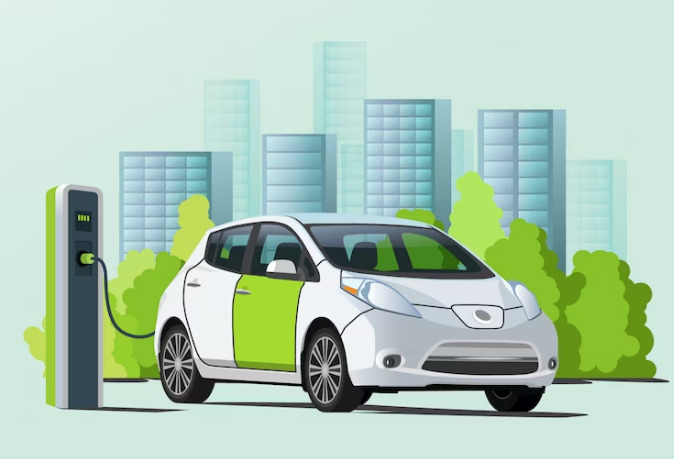
electric Car
Discover the future of driving
Find your perfect electric vehicle
Electric cars are growing in popularity thanks to their low running costs and fun, zero-emissions drive.
The market for electric cars is in the best shape it’s ever been in. There’s loads more choice, with everything from saloons to SUVs now available in electric. Improved battery technology means electric cars can travel further between charges (increased range), and charging points are more accessible both publicly and at home.
Tax benefits and low refuel costs mean they’re very tempting, especially for those who don’t often make long journeys.

Electric buying deals
brand new car deals
Find from 200 brand new electric cars
used car deals
Find from 200 used electric cars
Learn more about electric cars
Electric car conversions
Get up close with classic electric car conversions, and find out how much it'd cost to convert...
Mercedes-Benz EQB SUV (2021 - ) review
A compact SUV with full electric power and seven seats for all the family, the Mercedes EQB is expensive...
Coming Soon: Polestar 3
Polestar announce their new electric SUV: the Polestar 3, due 2022...
Audi Q4 e-tron SUV (2021 - ) review
Tempted by a VW ID.4 or Skoda Enyaq but want something a bit posher? Audi’s Q4 E-Tron could be just the answer...
Your question answered
That depends on what you want it for. There are some solid all-rounders on the market, while others excel in specific areas – like the best range, high-performance, the smoothest drive or the best onboard tech. Take a look at our picks for the best electric cars available today.
The choice of electric cars is still relatively limited compared to petrol and diesel, but more manufacturers are investing and innovating in this space. As such, we’re seeing a slew of announcements from household brands and we’re rapidly approaching the point where there’ll be an electric car for everyone. The next few years look very exciting for electric cars.
To charge an electric car, you access the electric grid via a charging point. You have the option of using public charging points or charging at home.
You’ll need to use a cable and a compatible connector. As different cars use different connectors, you’ll need to check nearby chargers support your car – though most now offer the standard Type 2 and ChaDeMo connectors.
On average, it takes between 30 minutes (with a rapid charger) and 12 hours (using a trickle charge or domestic supply) to fully charge a car, depending on the size of the battery and the power of the charging point. A smaller battery won’t take as long to fully charge but won’t hold as much charge, so it’ll need recharging more often. The key is to find a comfortable balance and one that suits your average journey length.
A charging point with higher power output (around 43kW) will take less time to charge a battery than a charging point with a lower power output (around 3kW). Just be aware using high-power chargers too often can sometimes damage the battery so, again, find a balance that works.
Working out how long you’ll take to charge is pretty simple: divide the kilowatt-hour (kWh) of your battery by the kilowatt (kW) power of the charging point. For example, a 60kWh battery plugged into a 7kW charger takes eight hours to fully charge from flat.
Charging that same 60kWh battery at a 40kW rapid charger, theoretically, would only take 90 minutes from flat – and much less for a top-up charge on the go.
The cost of charging an electric car depends on where you charge it.
Charging an electric car from home, can be one of the cheapest ways to fuel any vehicle. Some providers offer electric-car tariffs, with specific rates for charging electric cars. You could be looking at as little as eight pence per mile.
The cost of charging using the public network varies depending on how much juice you need, which network is running the charging point, and the type of charging point you’re using.
Rapid charging points tend to be the most expensive - around £7 for a 30-minute charge. But they can charge your car in less time, so you do get convenience for your money.
There are different types of charger available at different price points, so you’ll be able to charge an electric car on most fuel budgets.
Most modern electric cars can go well over 100 miles before they need recharging, and many can cover over 250 miles in one charge.
How far an electric car travels between charges is called the range. An electric car’s range can be affected by the car’s weight, battery health and other factors including variables like the weather. For instance, if it’s cold, dark and raining and you’re using your heater, lights and wipers this can drain the battery more quickly.
Older electric cars tend to have limited range. If you’re looking at a used electric car, make sure you check the original claimed range and the health of the battery. Older batteries might not hold their charge as well, so will need charging more often. This doesn’t mean used electric cars should be overlooked – they can make an affordable and practical entry point to the electric car market – you just need to be aware of any limitations and make sure a used electric car suits your lifestyle.
The average price range for a brand-new electric car range between $23,000 and $140,000+. Used electric cars can start from much less.
Just like petrol and diesel models a luxury electric car in the top-trim level costs a lot more than an entry-level model – and there are electric cars available for nearly every budget in between, so shop around and you’ll find one that suits.
While the list price is higher (and can be off-putting) it’s worth remembering the total cost of owning an electric car can work out cheaper overall. Lower fuel costs, road tax/VED exemption and operating costs mean, over the span of a couple of years, electric vehicles can actually to cost less to run overall than petrol or diesels.
Zero emission vehicles, including electric cars, are currently exempt from paying vehicle excise duty (road tax). You’ll still need to register your vehicle for tax (as you would any other car) but you won’t pay anything. You could also opt for an electric car salary sacrifice scheme, which gives you the option to buy an EV with monthly payment from your gross salary (income before tax).
Electric cars draw power from the grid though a public or home charging point. This electric power is stored in rechargeable batteries, which power an electric motor, which turns the wheels.
When the battery runs low, you simply plug the car back into the charging point and fill it up again. EVs have up to 90 per cent fewer moving parts than petrol or diesel cars. They often have a single-speed transmission and an AC motor, so servicing them can be a doddle. Just remember the parts can be more expensive to repair or replace.
While electric cars still produce a carbon footprint, they are, on balance, better for the environment than petrol or diesel vehicles at a local level.
Electric vehicles produce zero emissions, so they directly help reduce overall air pollution levels – which is crucial in cities and has led to plans for clean air zones across the UK.
Investment and innovation in renewable energy sources, including wind power, mean powering an electric vehicle in an ethical and sustainable way should only continue to improve.

